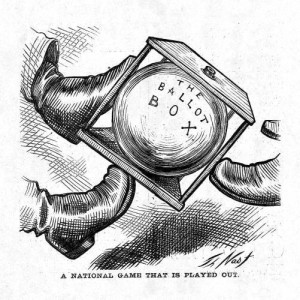Marquette Law School Poll
Marquette University Law School will undertake a substantial statewide polling initiative during 2012. This will be the most comprehensive polling enterprise in Wisconsin’s history, following public opinion through a number of polls over the year. The goal of the Marquette Law School Poll is to provide a balanced and detailed understanding of how voters on all sides view and respond to the issues of the 2012 campaigns. The initiative will build upon the work at Marquette Law School of Mike Gousha, distinguished fellow in law and public policy since 2008, and Alan Borsuk, senior fellow in law and public policy since 2009. Leading the effort will be Charles Franklin, a University of Wisconsin–Madison professor of political science, who will be with us throughout 2012 as a visiting professor of law and public policy. Franklin is a national expert on statistical methods, political polling, elections, and public opinion. With the national attention that Wisconsin will receive in 2012 and Marquette Law School’s growing reputation as a premier neutral site for debate and civil discourse on matters affecting the region and points beyond—and with Franklin, Gousha, and Borsuk, together with interested faculty at the Law School and the larger university—there can be little doubt that the time, place, and people are right for the Marquette Law School Poll. The announcement and the underlying reasoning are expanded upon in this press release and in this detailed project description.

